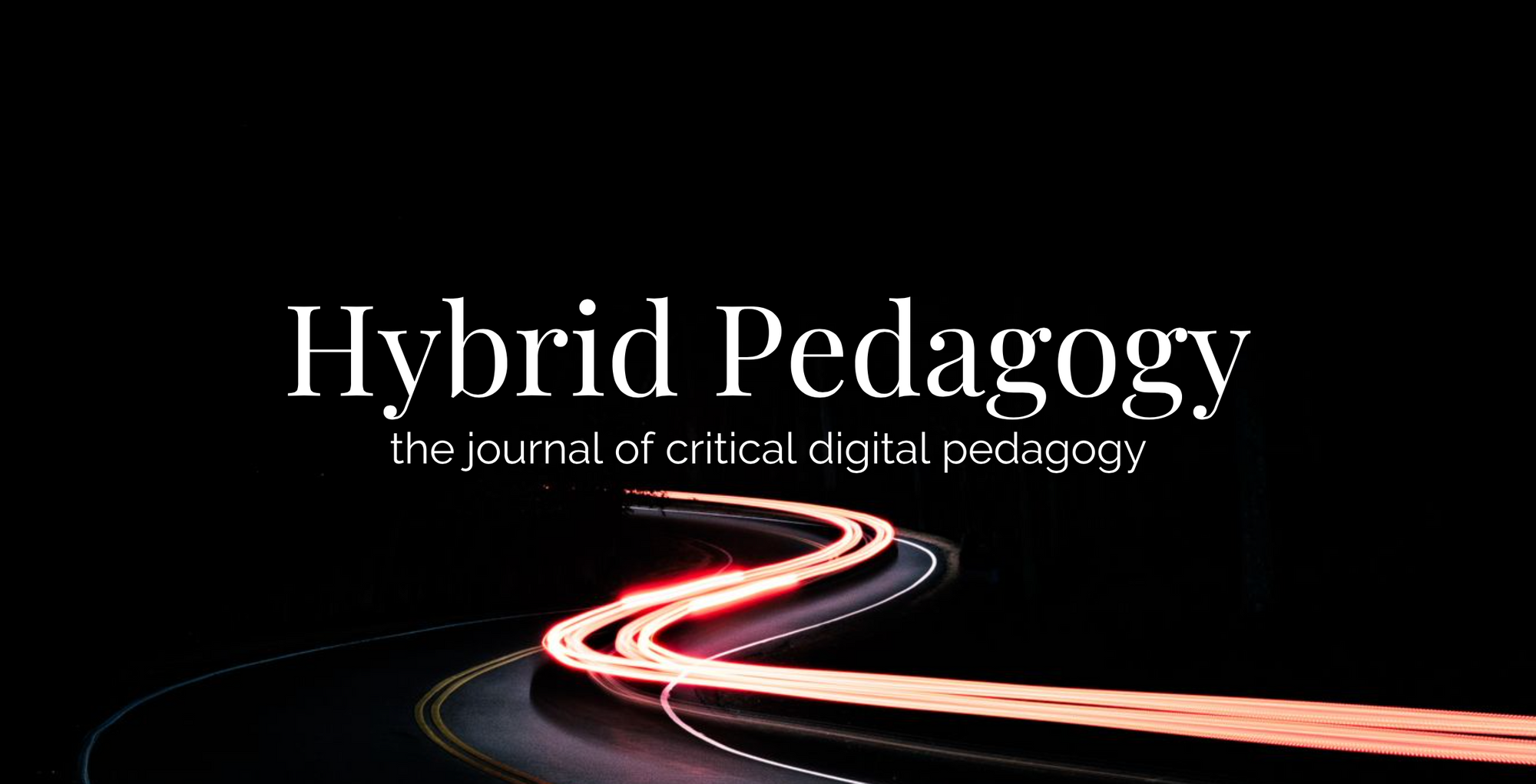Hybrid Pedagogy (ISSN: 2332-2098) is a community, a conversation, a collaboration, a school, and a journal. It is a place to discuss critical digital pedagogy by advocating for students and fostering awareness of academic hierarchies. We work together to enact an understanding of co-teaching within a community of mutual respect. Hybrid Pedagogy is centered on praxis — the blend of theory and practice that develops with experience and reflection. We have been an independent 501(c)3 non-profit organization since 2014. If you'd like to support our work, you can make a tax deductible donation here.
Hybrid Pedagogy was launched in 2011 by Jesse Stommel and Pete Rorabaugh and offers a new academic publishing model influenced by digital culture. As a scholarly journal, we encourage participation in the composition and peer review of articles across disciplinary and professional boundaries. We use what we call “collaborative peer review,” in which members of the editorial collective engage directly with authors to revise and develop articles, followed by post-publication peer review. We invite experimentation and improvisation.
Articles in this journal combine personal experience, current conversations in academia, and a theoretical foundation that presumes the value, strength, and independent thinking of all learners. As such, Hybrid Pedagogy is not ideologically neutral. The journal’s principles can be found not only in its name and in articles like “What is Hybrid Pedagogy?”, but also in the works of critical pedagogues like Paulo Freire and bell hooks. Education happens everywhere — all the time — and people must be empowered to learn and teach throughout their lives. And because technology is incorporated in all aspects of our lives, people must also be empowered to conscientiously evaluate the role of technology in their learning and teaching. Hybrid Pedagogy exists to explore those connections: the contact points and interconnectedness of learning, teaching, and technology in our lives. Our work advocates for teachers, advocates for marginalized voices in education, but first and foremost advocates for students and learners.
In short, Hybrid Pedagogy is an open-access, peer-reviewed journal that…
- combines the strands of critical pedagogy and digital pedagogy to arrive at the best social and civil uses for technology and new media in education;
- brings higher education and K-12 teachers into conversation with the e-learning and open education communities;
- avoids valorizing educational technology, but seeks to interrogate and investigate technological tools to determine their most progressive applications;
- invites its audience to participate in (and be an integral part of) the peer review process;
- and thus interrogates (and makes transparent) academic publishing practices.
Primers
Hybrid Pedagogy has begun to curate a series of primers. These are not intended as definitive collections, not exclusively the best articles on a given subject, and not simply the highlights. What we offer is a series of rabbit holes for readers to fall down, one point of entry to a subject we’ve explored (and are continuing to explore) on the pages of the journal. Our hope is that these primers don’t close down a topic but remain dynamic, offering a snapshot, while also encouraging continuing questions and exploration.
Online Learning
Digital Pedagogy
Hybrid Pedagogy Non-profit Board
Executive Director:
Jesse Stommel (Jesse@hybridpedagogy.org)
Board of Directors:
Jesse Stommel
Chris Friend
R L Widmann
Robin Wharton
Kris Shaffer
Our History
The development of the journal, from inception through noteworthy projects and recent spinoffs.

